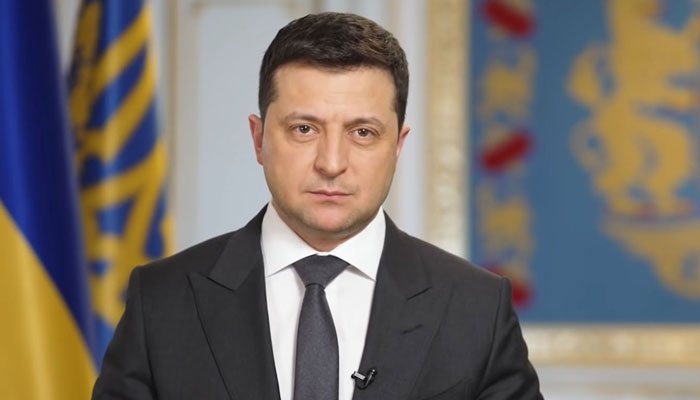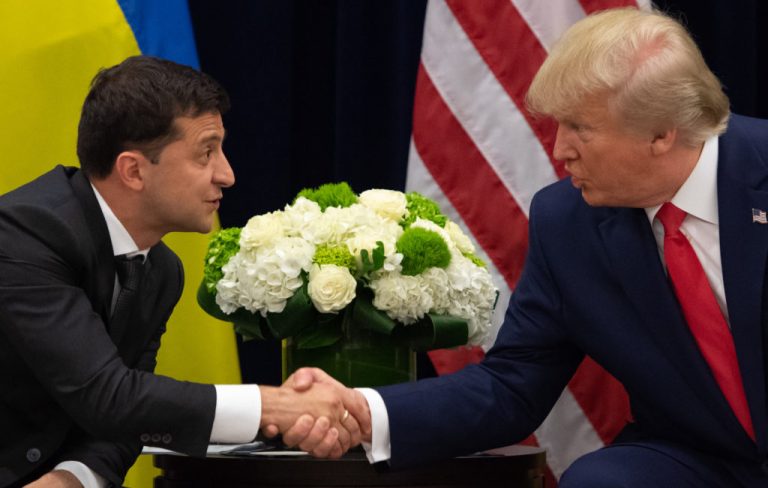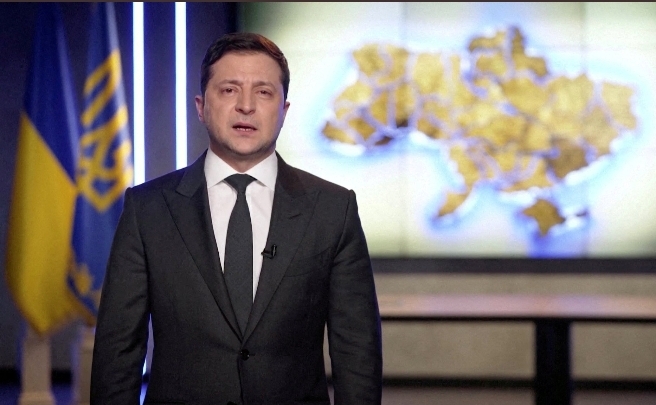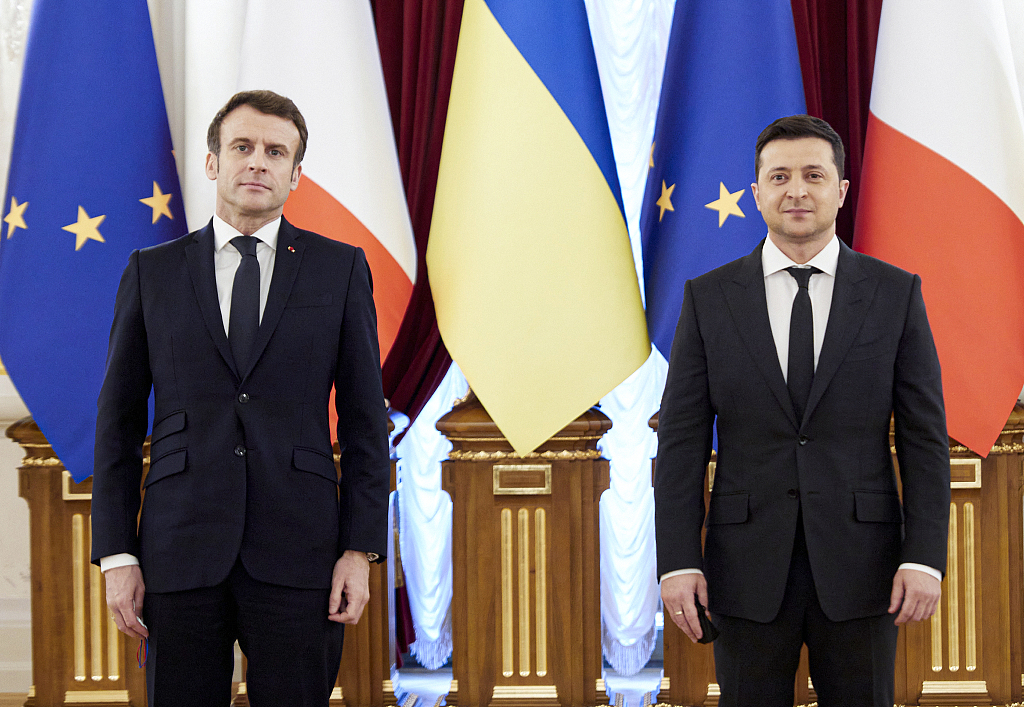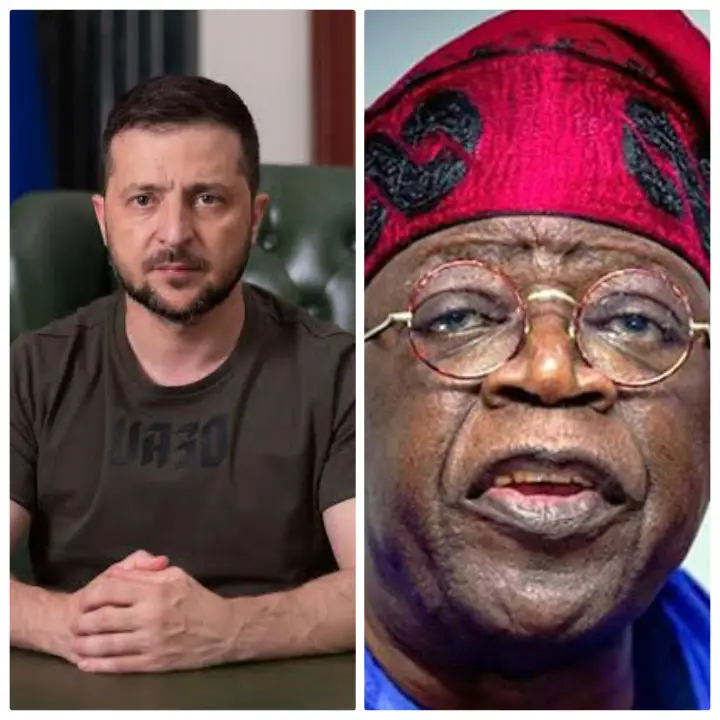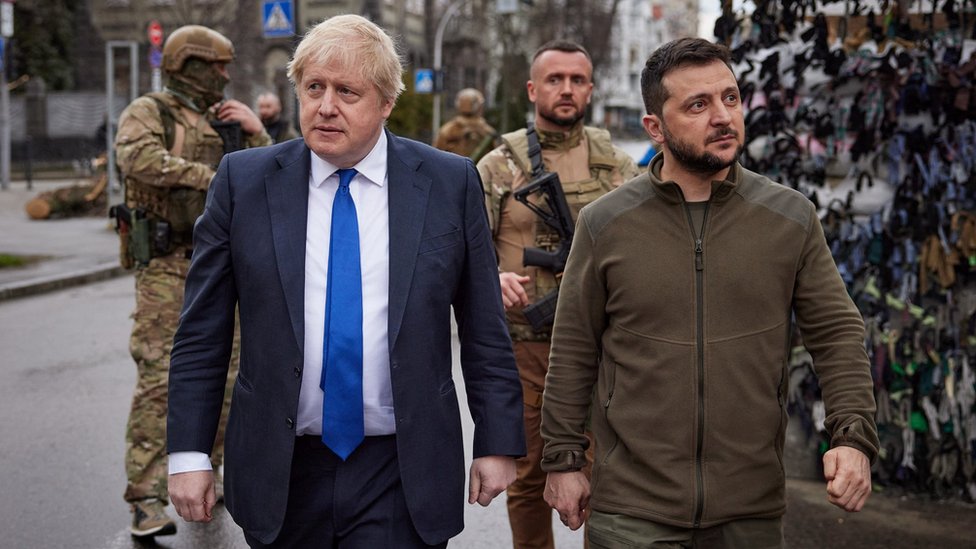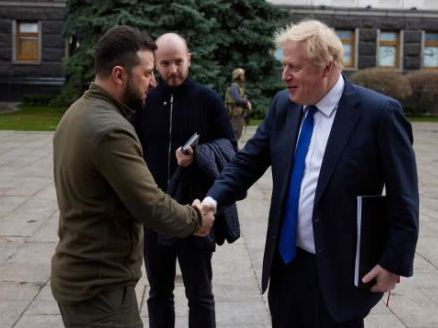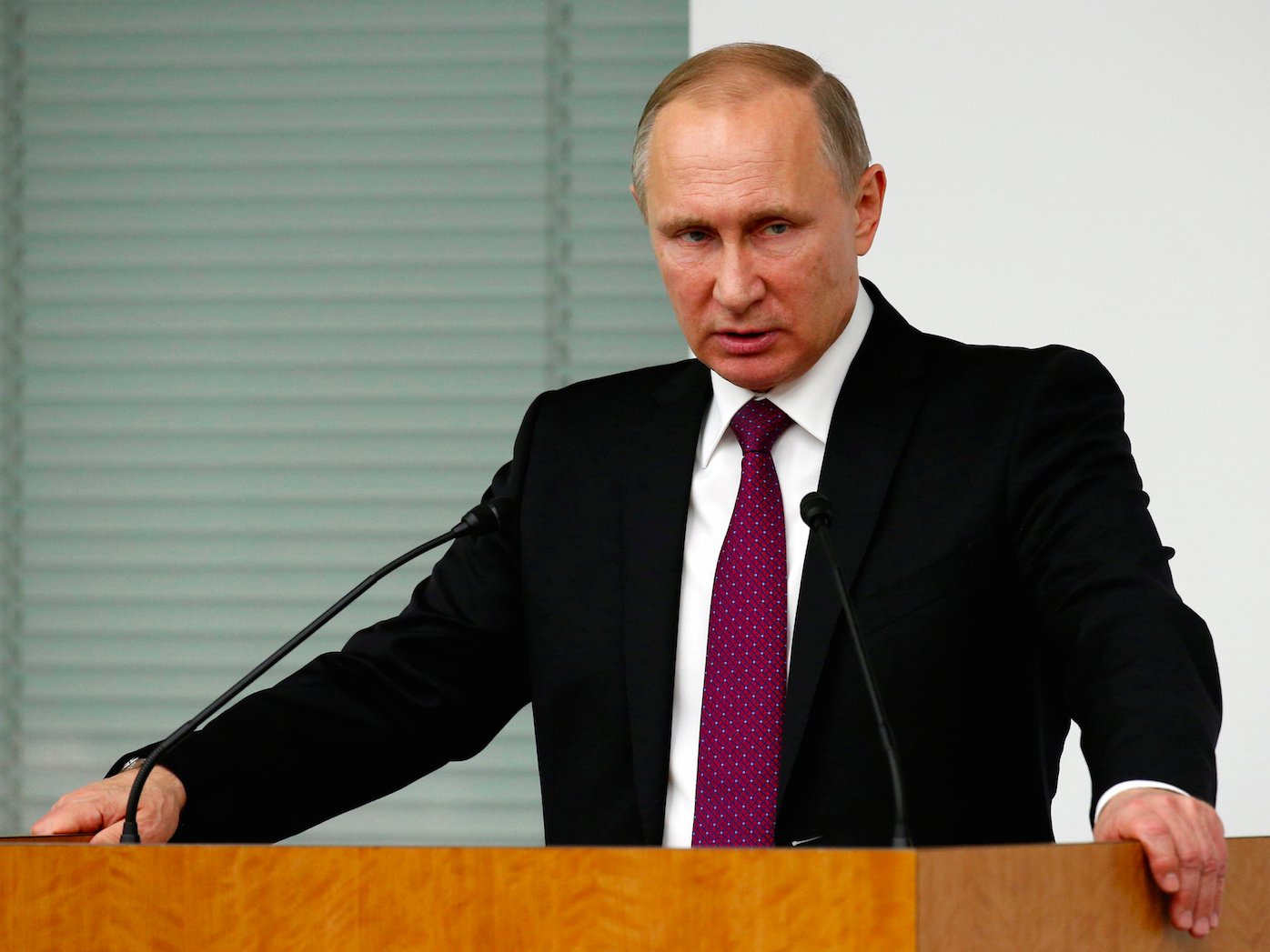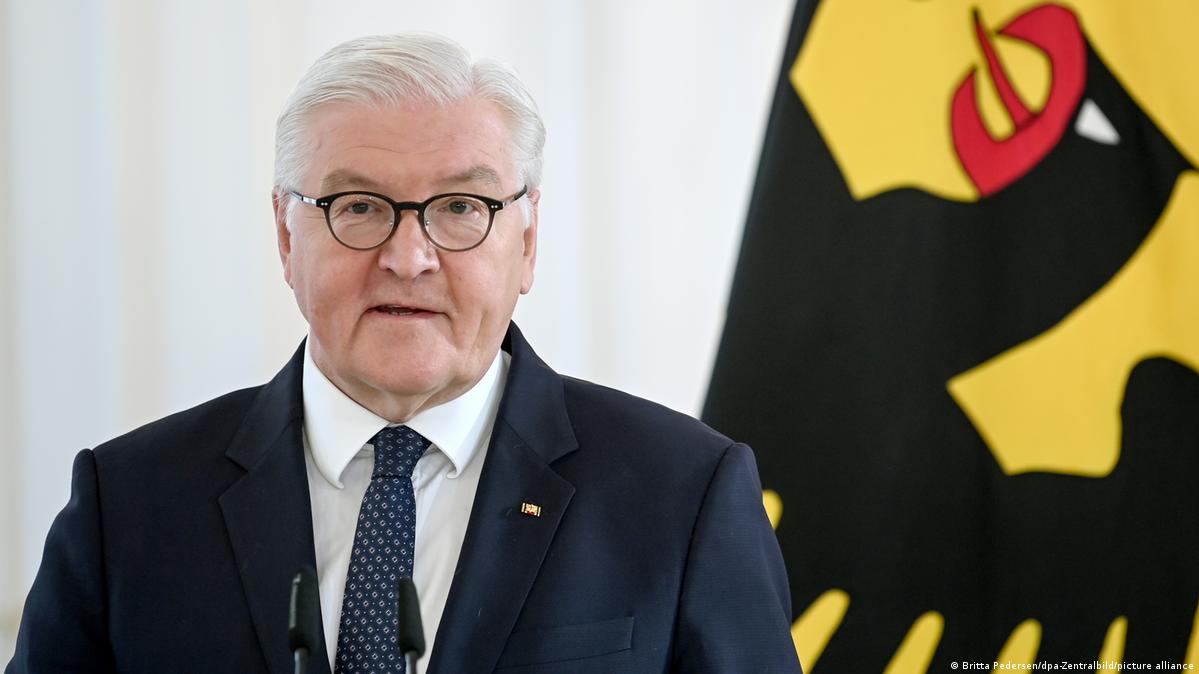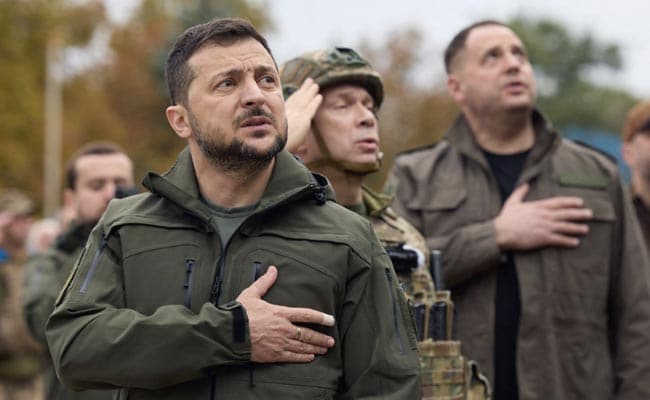PRESIDENT Volodymyr Zelensky of Ukraine was in Washington, where, in a speech to the American Congress on December 21, 2022, he rehearsed some of his daily speeches back home. One thread I picked were his claims that the war with Russia is about democracy and that its outcome will determine whether humanity lives in a world of “democracy” or not.
He said the American expenditure in the Ukrainian War is not charity, but an “investment in global security and democracy”. The deception that the war is about democracy has been picked up in social media, where we are urged to take sides with Ukraine because its war with Russia is “a global fight for democracy”. In reality, the Ukrainian crisis, which has erupted into the Russo-Ukrainian War, was precipitated by Ukraine’s extreme right, which repeatedly rejected the ballot box, resulting in two bloody coups and the subsequent decision of Eastern Ukraine to secede.
Ukraine was an integral part of Russia which, by a majority of 92.3 per cent, approved the August 24, 1991 Declaration of Independence. It decided that the ballot box would decide who presides over its affairs. The turning point came in the 2004 elections, when the pro-Russian candidate from Eastern Ukraine and former Governor of Donetsk, Viktor Yanukovych, won the December 26 re-run elections, beating his rival, Viktor Yushchenko. He was subsequently declared the winner.
However, some forces that preferred a pro-West leader, rejected him and mobilised protests in the capital Kiev, which is in the north central region. The president-elect could not effectively counter these protests as his support base was in the eastern Ukrainian areas of Kharkiv, Luhansk, and Donetsk. These protests, which were christened the ‘Orange Revolution’ led to the annulment of the election. In the new elections, the former loser, Yushchenko, was declared the winner.
Yanukovych ran again in the 2010 elections, sweeping the polls. This time he was sworn in. Three years into his presidency, his government rejected a European Union agreement. Rather, it chose closer ties with Russia. Again, the pro-West elements staged rounds of protests in Kiev, christening it “Euromaidan”. There were counterprotests in other parts of the country, especially in the East.
On February 21, 2014, President Yanukovych who claimed there was an assassination attempt on his life, fled Kiev for exile in Russia. This was the second coup, and the Ukrainians in the east rejected this coup and opted for armed secession. There were two international peace accords in Minsk to end the conflicts, but the new authorities in Kiev refused to implement them. Instead, they preferred to continue their assault on Eastern Ukrainians and join NATO as a guarantee that Russia will not intervene militarily to help its supporters in Eastern Ukraine. Given these facts, how can the Ukrainian War be sold as one for global democracy?
However, that is the nature of the Western propaganda that is being forced down the throats of many countries. Nigeria is one of these targets, with an entire television station dedicated to uploading Ukrainian propaganda on Nigerians on a daily basis, with no regulatory or professional media bodies blinking an eye.
In this daily invasion of our homes, this media assaults Nigerians with Ukrainian propaganda in the guise of news and news analysis. It is like packaging cigarettes as candies and, therefore, failing to inscribe the warning that smoking is dangerous to health as it causes cancer, stroke, diabetes, heart disease, and chronic bronchitis. Even if this media does not disclose who funds this project, professionally, it ought to indicate that it is an advertisement, so viewers can be advised.
Unfortunately, even respectable diplomats are involved in this marketing gambit. For instance, Ambassador Joseph. U. Ayalogu, Nigerian and former permanent representative to the United Nations in Geneva and our one time ambassador to Switzerland, lent his credibility to such inanities.
Let me first clarify that he has a right to support Ukraine. I also will not begrudge him for insisting that there should be no peace talks until Russia fully withdraws from Ukraine. However, what I object to is his misinforming and misleading the Nigerian public that, although difficult, Russia can be expelled from the United Nations and the UN Security Council for engaging in war with its neigbour.
I consider Zelensky, who made the request, an uninformed propagandist and illusionist. Even his American allies chuckled when he made the request. I did not, therefore, expect an experienced diplomat who was also Nigeria’s expert at the UN to take the Zelensky request seriously or declare it “quite rightly”. The least I expected of Ambassador Ayalogu, is to be conversant with the United Nations Charter, which is an 8,907-word document. I am convinced he is, so why he chooses to misinform the Nigerian populace is baffling.
Let me simply state that Russia, as a Permanent Member of the UNSC with veto power, cannot even be suspended, let alone expelled, as the respected Ambassador Ayalogu claims. My authority is the UN Charter. On expulsion, Article 6 of the Charter states that: “A Member of the United Nations who has persistently violated the Principles contained in the present Charter may be expelled from the Organisation by the General Assembly upon the recommendation of the Security Council.”
The issue is how you get the Security Council to recommend the expulsion of its permanent members when each of the Big Five — the United States, France, the United Kingdom, China and Russia has the power to veto whatever decision is taken, either by the Council or all members of the UN for that matter.
On veto power, Article 27 (3) of the Charter states: “Decisions of the Security Council on all other matters shall be made by an affirmative vote of nine members, including the concurring votes of the permanent members; provided that, in decisions under Chapter VI, and under paragraph 3 of Article 52, a party to a dispute shall abstain from voting.” The Chapter VI and Article 52 referred to are not binding resolutions.
Does Ambassador Ayalogu expect Russia to vote for its own expulsion? Is that how diplomacy is run; that an entity will be expected to vote for its own liquidation? This is, of course, not the only hare-brained proposal on this matter. There is another that claim that when the Charter was made in 1945, there was no Russian Federation in existence; that what was existing was the Union of Soviet Socialist Republics, or USSR. So with the disintegration of the USSR, Russia automatically lost its membership in the UN. So it should simply go home and apply for membership. Welcome to the world of grand illusionists.
